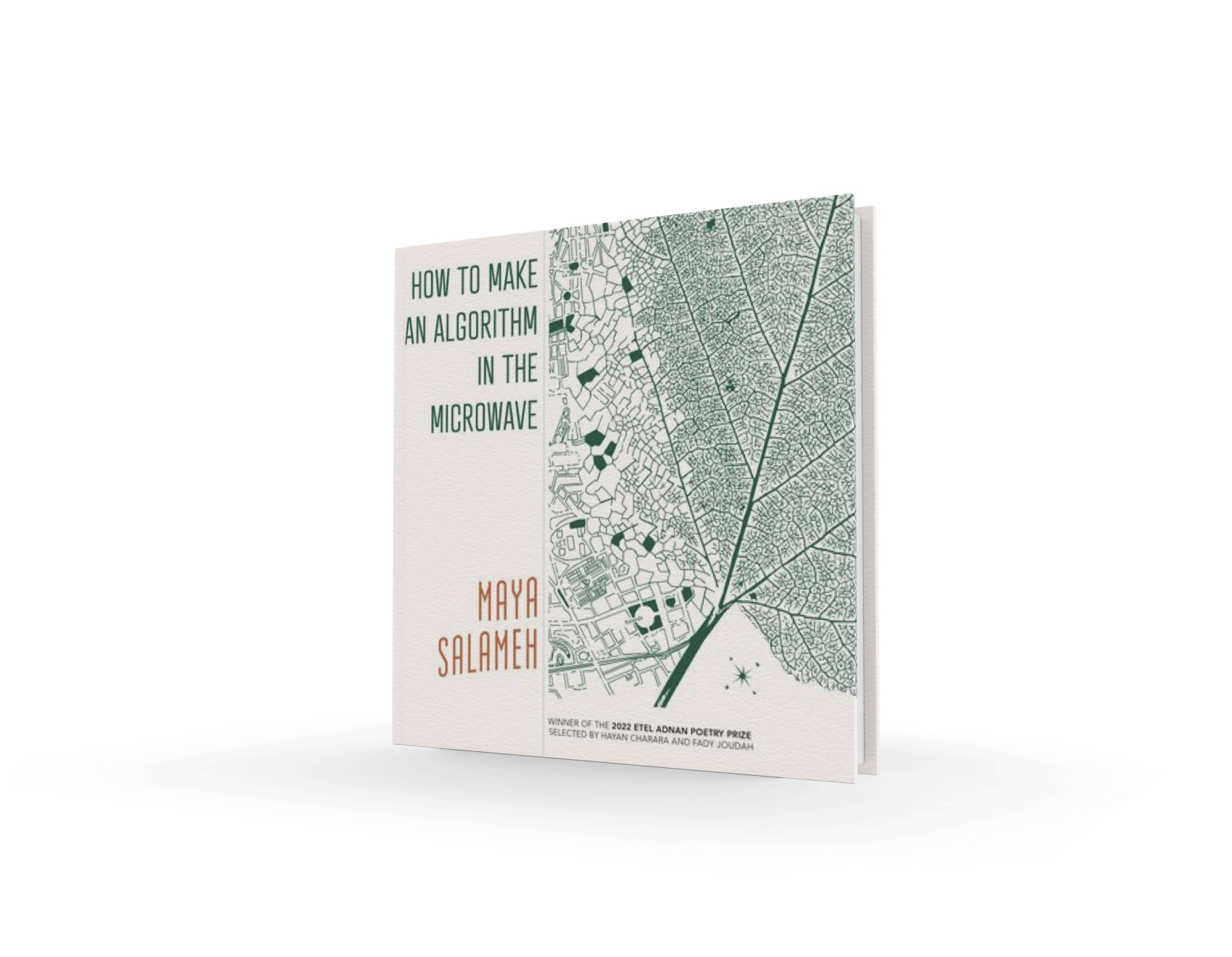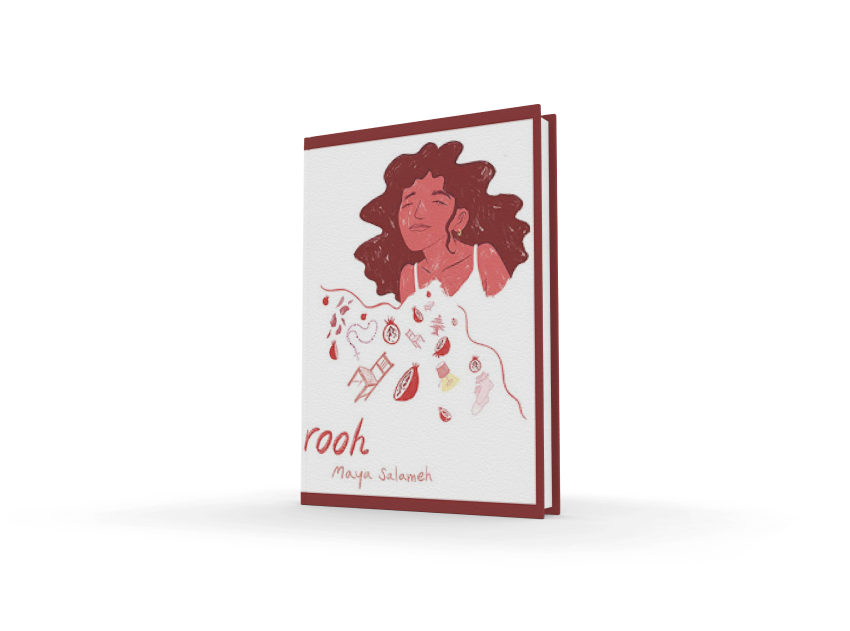How to Make An Algorithm In The Microwave
University of Arkansas Press

“How to Make an Algorithm in the Microwave upends every way I’ve ever used the term ‘multilingual.’ These poems crackle with language, a cacophony of Arabic and English and French and code and formal invention and song lyrics and photographs and footnotes. Everything is given a voice in these poems—speakers across many comings of age, cities, pop stars, the digital world—and the result is lush and orchestral, searing and intelligent and incredibly fun. We are so lucky. I am so lucky, to read and learn from Maya Salameh, luminous inventor, luminous interrogator.”
Safia Elhillo, author ofThe January Children and Girls That Never Die
Safia Elhillo, author ofThe January Children and Girls That Never Die
“Maya Salameh’s How to Make Algorithm in the Microwave carries the echo of the wild diasporic future in the late American empire of now. Employing computer code, Punnett squares, experimental prayers, and anarchic prose, Salameh writes herself a homeland made of a language redolent of celebrated flesh, a zajal between Fairouz and Amy Winehouse. ‘I pull at the serifs on words,’ she writes in ‘Case Study on Me & Sunlight’: ‘the old meanings / of rain. there are still some joints in/ my elbows I have never / read.’ Point to any page and you’ll say psalm. You’ll say, not dead. You’ll see: future.”
Philip Metres, author of Sand Opera and Shrapnel Maps
Philip Metres, author of Sand Opera and Shrapnel Maps
“We need a new poetry lexicon—a new way of moleculing the poem on the page, even—and Maya Salameh brings it. We need all the strange Arabic-diasporic ways we can find for being in this terrible and joyful and often frighteningly banalizing world, and Salameh’s poems are a generous find. Her writing is an unexpected cousin in the colonized and capitalism-razed city, bewildering and divining things you’ve never heard but want to learn. . . . Prepare to be stretched and delighted.”
Mohja Kahf, author of E-mails from Scheherazad and Hagar Poems
Mohja Kahf, author of E-mails from Scheherazad and Hagar Poems
